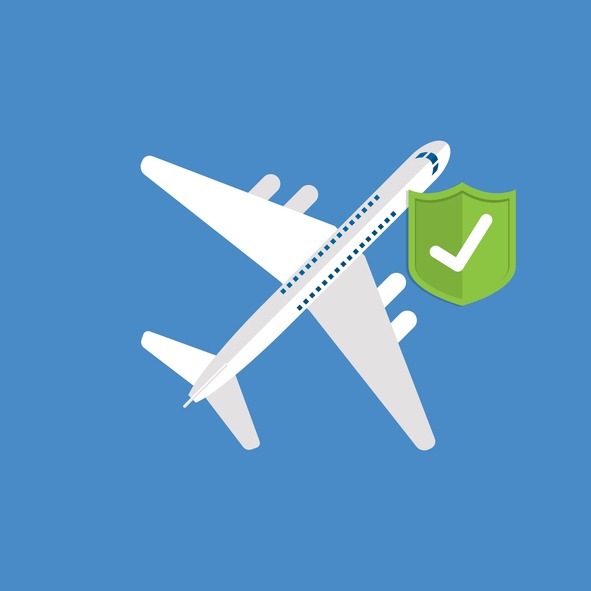Aviation Cybersecurity for Airports, FBOs, and Aviation Facilities
Airports applying for AIP and ATP grants, navigation aid operators, and aviation facilities—understand the evolving cybersecurity landscape from someone who bridges aviation operations and information security.
41 Years of Combined Aviation Service (Parallel Federal Electronic Engineering & Military Avionics) + MSIT Information Security Specialization = Aviation Infrastructure Guidance You Can Trust.
Aviation Cybersecurity for Airports, FBOs, and Aviation Facilities
Understand the evolving aviation cybersecurity landscape from someone who bridges operations and security.
41 Years of Combined Aviation Service (Parallel Federal Electronic Engineering & Military Avionics) + MSIT Information Security Specialization = Aviation Infrastructure Guidance You Can Trust.
Comprehensive Aviation Cybersecurity Resources
📚 In-Depth Educational Articles: Deep dives into ILS security, FAA grant compliance, navigation aid vulnerabilities, and practical implementation strategies. Written from 28 years of hands-on experience maintaining the actual systems.
📋 FAA Grant Cybersecurity Requirements: What does "demonstrate cybersecurity readiness" actually mean for AIP and ATP grants? This guide breaks down the requirements so you understand what's expected.
FAA Grant Requirements. Emerging ARC Standards. Cyber Threats. You Need Specialized Expertise


Whether you hold FAA Part 139 certification, manage navigation aids under Part 171, operate under TSA Part 1542, or run an FBO with critical systems, cybersecurity is no longer optional.
The challenge:
FAA now requires a cybersecurity readiness demonstration for AIP and ATP grant agreements
FAA's Civil Aviation Cybersecurity ARC is developing standards that will affect airports of all sizes
TSA issued emergency cybersecurity requirements in March 2023
Cyberattacks on airports increased 24% year-over-year
Most airport operations teams don't have cybersecurity expertise in-house
The gap:
IT security firms understand cyber threats, but don't understand ILS systems
Aviation professionals understand operations, but not information security
Regulators require compliance, but most facilities lack technical staff
You need someone who bridges both worlds.
Your Systems Are Different. Your Risks Are Different. You Need Specialized Help.
Most cybersecurity consultants believe "aviation security" refers to protecting an organization's email server. They're missing the real vulnerabilities:
Systems Most Airport Operators Don't Think of as "Cyber Targets":
Instrument Landing Systems (ILS)
Precision Approach Path Indicators (PAPI)
Approach lighting systems (ALS)
Runway edge lights and taxiway guidance systems
Remote lighting control systems
Airport beacon systems
Automated weather observation systems (AWOS/ASOS)
Fuel management systems
Baggage handling systems
Building management and HVAC controls
Access control and security cameras
The problem: Many of these systems were installed before cybersecurity considerations were a priority. They have default passwords, no encryption, outdated software, and direct connections to other networks.
The reality: An attacker doesn't need to compromise your primary server. They can target a remote lighting controller that hasn't been updated in 10 years, a weather observation system with a known vulnerability, or a building management system running Windows XP.


Specialized Aviation Cybersecurity Guidance for All Facility Types
Aviation Relations provides cybersecurity education for:
Part 139 Certificated Airports
Understanding cybersecurity readiness for AIP/ATP grant eligibility
Integrating cybersecurity into Safety Management Systems (SMS)
Safety event reporting for cyber incidents
Part 171 Navigation Aid Operators
Security considerations for ILS, VOR, DME, and non-federal navigation facilities
Balancing reliability requirements with cybersecurity
Legacy system vulnerabilities
General Aviation Airports
What the coming FAA Civil Aviation Cybersecurity ARC means for you
Building security awareness within limited budgets
Essential cybersecurity fundamentals
TSA-Regulated Airports (Part 1542)
Understanding TSA emergency cybersecurity requirements
Network segmentation, access control, continuous monitoring, and patch management
FBOs and Private Aviation Facilities
Critical system identification
Vendor and third-party risk awareness
This Isn't Theoretical—Airports Are Under Attack Right Now
This Isn't Theoretical—Airports Are Under Attack Right Now
Port of Seattle (August 2024): Ransomware disrupted Wi-Fi, baggage systems, check-in kiosks, ticketing, and display boards. Employees used dry-erase boards for flight information. 90,000 people impacted.
European Airports (September 2025): The Cicada Aerospace ransomware attack disrupted operations at Heathrow, Berlin Brandenburg, Brussels, and Dublin, resulting in manual check-ins and flight cancellations.
Kuala Lumpur (March 2025): $10 million ransom demand. Days of disruption to flight displays and check-in counters.
The pattern: Attackers aren't just targeting IT systems. They're targeting the operational technology that keeps airports running.
I write about these threats and how aviation facilities can prepare.
Aviation-First Cybersecurity, Not Generic IT Security
Understanding Your World
I know what a glideslope is
I understand runway lighting control systems
I've worked on ILS installations
I speak your language—not just IT jargon
Practical, Not Theoretical
Solutions that work with your budget
Implementation plans you can actually execute
Focus on high-impact, achievable steps
No ivory tower recommendations
Navigate TSA Part 1542 requirements
Understand Part 139 certification
Expert in Part 171 navigation facilities
Track the coming FAA ARC mandates
Regulatory Knowledge
Stay Informed on Aviation Cybersecurity


Comprehensive articles on ILS security, FAA grant requirements, and aviation OT
Based on 28 years of hands-on FAA experience
Practical insights and real-world examples
No fluff—actionable information you can use
Perfect for airport managers, technicians, and facility directors
When ARC recommendations and TSA requirements evolve, I'll help make sense of them.
Free Educational Resources
© 2025. All rights reserved.
Need to know:
I AM EMPLOYED AS AN ILS ELECTRONICS ENGINEER WITH THE FEDERAL AVIATION ADMINISTRATION. MY CYBERSECURITY WRITING IS CONDUCTED IN MY PERSONAL CAPACITY, BASED ON MY MSIT EDUCATION, AND MAINTAINED WITH CLEAR ETHICAL BOUNDARIES.
I do not provide Part 171 equipment compliance consulting or services within my federal job scope. All content uses personal time and resources, is based on publicly available information, and does not represent FAA positions or policy.
The views and guidance provided through Aviation Relations represent my professional opinion and experience as an individual and do not represent official FAA policy, positions, or endorsements. All content is provided in a personal capacity and is separate from any official FAA duties or responsibilities.